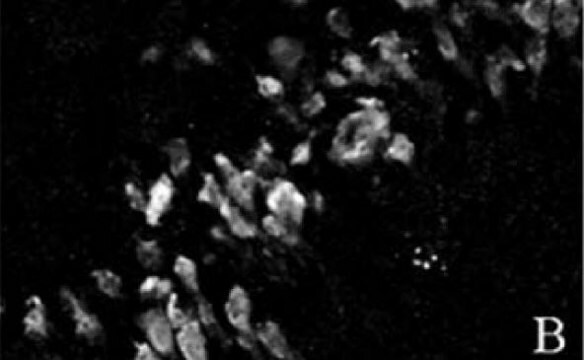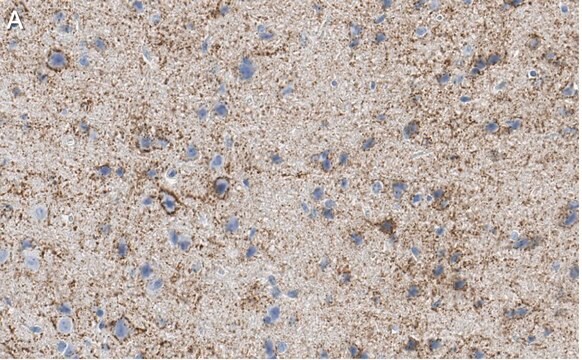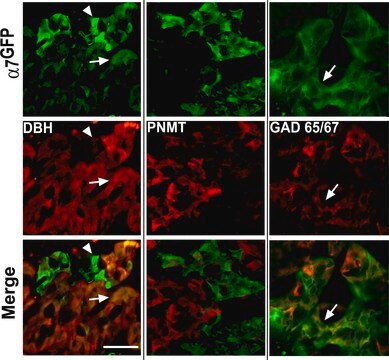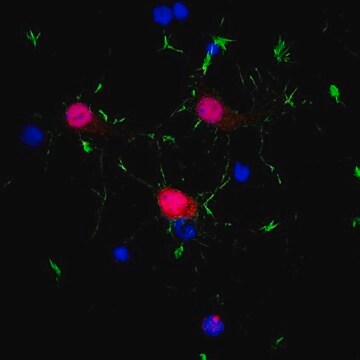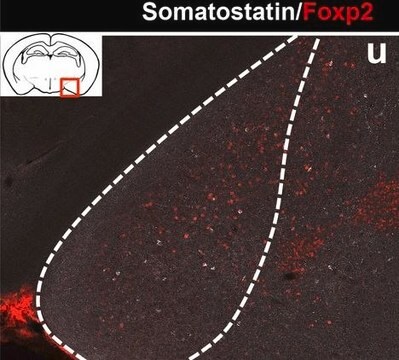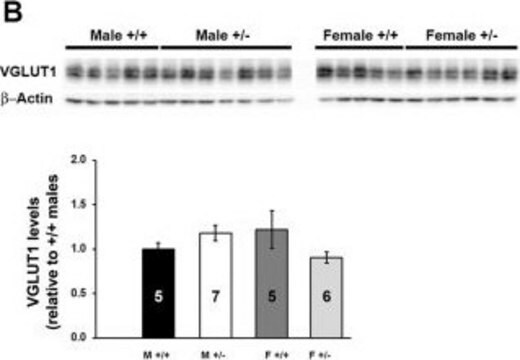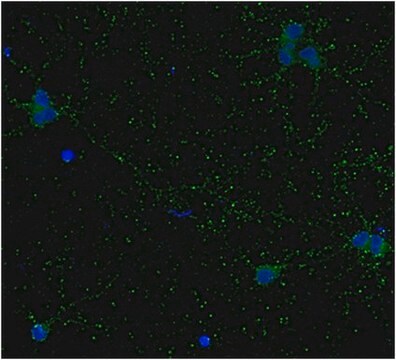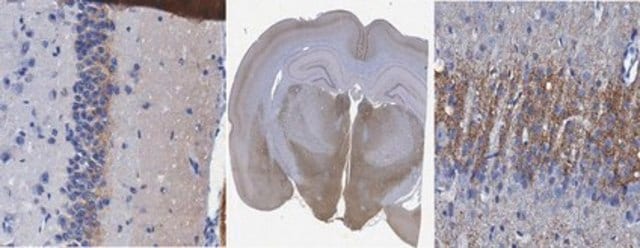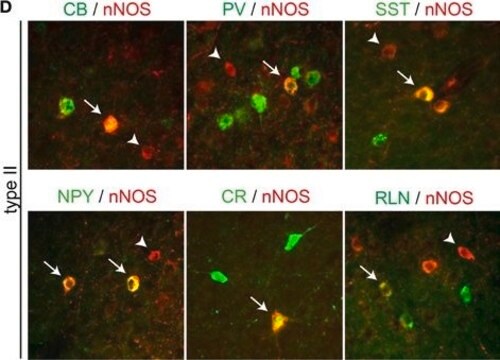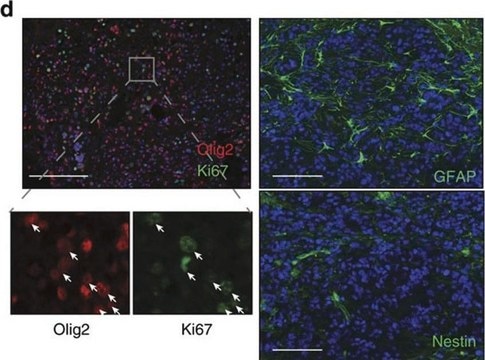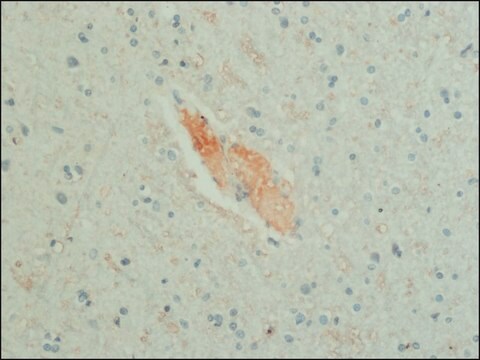MAB5406
Anti-GAD67 Antibody, clone 1G10.2
clone 1G10.2, Chemicon®, from mouse
Synonym(s):
Glutamate Decarboxylase 67kDa Isoform, Glutamate Decarboxylase 1, Glutamic acid decarboxylase 1
About This Item
Recommended Products
biological source
mouse
Quality Level
antibody form
purified immunoglobulin
antibody product type
primary antibodies
clone
1G10.2, monoclonal
species reactivity
human, mouse, rat
packaging
antibody small pack of 25 μg
manufacturer/tradename
Chemicon®
technique(s)
immunohistochemistry (formalin-fixed, paraffin-embedded sections): suitable
western blot: suitable
isotype
IgG2a
NCBI accession no.
UniProt accession no.
shipped in
ambient
storage temp.
2-8°C
target post-translational modification
unmodified
Gene Information
human ... GAD1(2571)
General description
Specificity
Immunogen
Application
Neuroscience
Neurotransmitters & Receptors
Neuronal & Glial Markers
Immunohistochemistry on 4% paraformaldehyde fixed mouse and rat tissue: 1:1,000-1:5,000. The antibody has also worked well on human tissue fixed for 10 minutes in 4% PFA at 4°C or 100% ethanol at +20°C or 100% acetone at -20°C at dilutions of 1:2,500-1:5,000.
A polyclonal to GAD67 is also available as AB5992.
Optimal working dilutions must be determined by end user.
Quality
Immunohistochemistry(paraffin) Analysis:
Representative staining pattern and morphology of GAD67 in somatosensory 1, barrel field of the mouse cerebral cortex. All brown spots are Lamina VI a neurons. No Epitope retrieval was necessary. This lot of the antibody was diluted to 1:500, using IHC Select Detection with HRP-DAB.
Optimal Staining pattern/morphology of GAD67: Mouse Brain.
Target description
Linkage
Physical form
Storage and Stability
Analysis Note
SKNSH cell lysate (human neuroblastoma), mouse cerebral cortex.
Legal Information
Disclaimer
Not finding the right product?
Try our Product Selector Tool.
Storage Class Code
12 - Non Combustible Liquids
WGK
WGK 2
Flash Point(F)
Not applicable
Flash Point(C)
Not applicable
Certificates of Analysis (COA)
Search for Certificates of Analysis (COA) by entering the products Lot/Batch Number. Lot and Batch Numbers can be found on a product’s label following the words ‘Lot’ or ‘Batch’.
Already Own This Product?
Find documentation for the products that you have recently purchased in the Document Library.
Customers Also Viewed
Our team of scientists has experience in all areas of research including Life Science, Material Science, Chemical Synthesis, Chromatography, Analytical and many others.
Contact Technical Service
